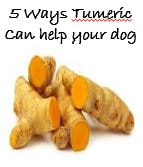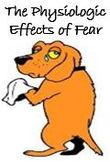Home Remedies for Intestinal Parasites (worms) in Pets
www.petremedycharts.com
(This site has a wealth of articles on herbal remedies and articles on discovering the natural alternatives to drugs and surgery)
www.petremedycharts.com
(This site has a wealth of articles on herbal remedies and articles on discovering the natural alternatives to drugs and surgery)

Signs
You see small white squiggly worms in your pets stool. Your cat or dog has something that resembles grains of rice coming from his or her backdoor. Your pet may be vomiting or have diarrhea. Your dog scoots or licks his rear more often than normal. Your pet is losing weight and is listless.
Causes and Solutions
The most common path to infestation includes: infested ground or soil, stagnant water which other animals have access to, the milk of an infected mother, and from fleas or rodents.
Dewormers
We feel it is best to use a veterinary preparation to get the problem under control. The oral de-worming products now available from your veterinarian are very safe and effective. Or choose a natural worming product for pets from a reputable company.
The Environment
If your pet is getting repeat infestations, then look at the environment. Tapeworms are caused by fleas or mice; use a flea-control program and purchase some mouse traps. Roundworms are spread from eggs in the grass, in the soil, or in stool on the ground. Keep your lawn clean and pick up all feces.
Herbal Remedies
Anthelmentic, Vermifuge, taenifuges, anti fungals, and parasiticides are names that refer to herbs that kill parasites.
PUMPKIN SEED (raw, organic).
This has been used for hooks and tapeworms. If your pet is a rodent hunter or is always re-infesting with tapes or hooks, you may want to consider this as a preventative measure (it really works). The dose is 1 tsp of the ground seed per 10 lbs of the animal's body weight. Tip: Grind the seeds in an electric coffee grinder (to a loose powder) andstore it in a glass jar in the freezer. Mix it into your pets food daily. This is a great dietary supplement whether your pet has worms or not! Their great for your pet but in the intestinal track, they act like ground glass to a worm, another one of natures great tricks! Raw pumpkin seeds are also a super source of zinc and vitamin A, and are higher in protein, 29%, than almost any other nut or seed.
GARLIC (Allium sativum).
This has shown some activity against a parasite called Giardia. It is useful for boosting the immune system in recurrent infections. Dogs can become infected with Giardia by drinking from contaminated streams and waterways; or anything else contaminated with infected fecal matter.
Garlic has a well earned reputation of enhancing immunity and warding off all kinds of worms. It can be minced or pressed and added to your dog (1/2 to 2 cloves daily) or cat's (1/4 to 1/2 clove daily) food. For cats it can also be offered minced and added to a small amount of warm cream.
In a recent scientific study, garlic was tested against Ivermectin (drug) and proved to be a very useful as an alternative treatment against parasites in animals and humans. The article link below includes new research using the Allium sativum anthelmentic effect and has been patented (http://www.ncbi.nlm.nih.gov/pubmed/18673129).
Common Drug Interactions
warfarin / blood-thinning medications - caution
Garlic has anti-platelet activity (preventing blood from clotting), it could increase the risk of bleeding. Tell your veterinarian that your pet is on this dietary supplement and discontinue its use before surgery or during treatment with blood-thinning medications.
PAPAYA. was shown to be effective in eliminating roundworms in pigs, it may work for your pet. As a supplement mature green papaya is a great source for digestive enzymes and provides the protein digestion of old muco-protein and parasites. If you don't have access to fresh papaya it can be purchased in powder form in health food stores.
CARROT (Finely Grated). to your pets daily diet, a couple of teaspoons up to 2 Tablespoons depending on the size of your pet can help keep the digestive track clean and less prone to worm infestations.
BLACK WALNUT (Juglans nigra). is a common anti-parasitic used in dogs and cats to treat tapeworms: most dosing schedules recommend 1 capsule of the ground herb per 20lbs of body weight. Black walnut should be used under professional supervision. DO NOT EXCEED DOSAGE. MORE IS NOT BETTER AND IT COULD BE HARMFUL (potential toxicity). Caution:Do Not Give Black Walnut to horses. Some horses are very sensitive to a fungal contaminate that can be found in walnut hulls. Due to safety issues (tannin and alkaloid levels that may lead to vomiting and diarrhea) we feel conventional dewormers (and other herbal deworming preparations) are much safer.
Beneficial Bacteria a stable, healthy gut environment will aid in disease prevention. Probiotic therapy, along with good housekeeping and management practices, can help your pet be resistant to disease.
Probiotics will help keep disease causing microorganisms in check by producing antibacterial agents and enzymes that act on and kill many pathogenic bacteria and viruses, the exact place where worms like to live. Probiotics help neutralize toxins produced by pathogenic bacteria and produce a wide range of B-vitamins and beneficial enzymes (Schoen). They also provide the protein digestion of old muco-protein and parasites.
Lactobacillus sporogenes is a type of lactobacillus is in a spore form. Its unique spores are resistant to destruction. This type of spore stays closed until it encounters the optimal environment for growth. This gives lactobacillus sporogenes supplements a very long shelf life. Another big plus is, the bacterium requires no refrigeration. The spores will also pass through the stomach's acidic environment with no problem. Once it reaches your pet's small intestine, it will open up, multiply and replenish the intestinal tract with friendly flora.
Benefits of Using Lactobacillus Sporogenes Over Other Types of Probiotics
• They survive in gastric secretions and bile of the upper digestive tract and reach the intestine safely.
• Settle in the digestive tract and produce enough lactic acid and other antagonistic substances to inhibit the growth of pathogenic bacteria.
Turmeric (curcumin)
Research done on animals in a lab setting shows that the herb turmeric has the potential to reduce inflammation and the damage to the intestine caused by worm infestations. There is also evidence from animal and lab studies that curcumin might protect the liver from damaging chemicals. This would probably include protecting the liver from the side effects of prescription drug wormers.
Turmeric contains four compounds with antiparasitic action. Individually, each of these compounds is ineffective, but when they're mixed together, they have strong worm-killing properties.
Common Drug Interactions
warfarin / blood-thinning medications - caution
Turmeric (Curcuma longa) has anti-platelet activity (preventing blood from clotting), it could increase the risk of bleeding. Tell your veterinarian that your pet is on this dietary supplement and discontinue its use before surgery or during treatment with blood-thinning medications.
Recommendations:
For keeping pets healthy the natural way, we recommend using Pet Remedy Charts, a Step-by-Step Holistic Home Healthcare System that will enable you to naturally treat your pets at home (without drugs) using safe, side effect free healing methods for dogs and cats.
|
5 Ways Tumeric can help your dog.
Most of us know about the use of Tumeric in cooking, however not all of us realize the many benefits this spice has in relation to you dog. |
The physiologic effects of fearThe Physiologic effects of fear
Fear or anxiety is more than just an emotional problem for pets—it has the potential to cause many serious physical health problems and contribute to several others. Veterinarians, therefore, have an obligation to make all efforts to reduce the incidence of fear in the clinic and at home. |
Trigger Stacking - how we set our dogs up to fail.
We do this often with the best intentions and not even realizing. Find out how you may inadvertently be setting up your dog to fail. |




